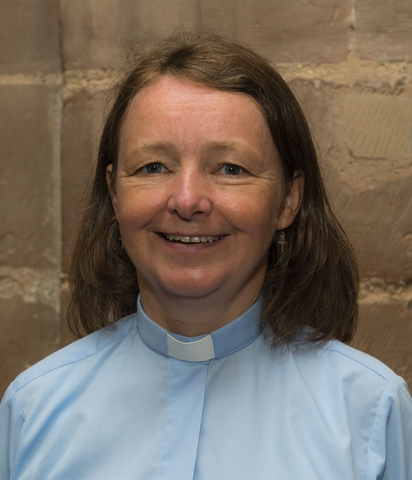
September News From the Clergy
28 Aug 2019 • From the Clergy
Ordinary Time between Pentecost and Advent can drag on a little, so I think I’m going to launch a campaign for the end of September to the beginning of December to be officially designated Angeltide!
On September 29th we celebrate the feast day of St Michael and All Angels and at the end of October we have All Hallows. No sooner have the pumpkins and witches’ costumes left our shop shelves than their place is taken by Christmas cards and decorations in which angels feature prominently.
So, we’re going to have an Angeltide; but what exactly is an angel, and what is the difference between an angel and an archangel? Well, an angel is a messenger, whilst an archangel is above the angels, a sort of boss-angel if you like. Archangels, though, are still employed by God as messengers, as we see in the story of the Nativity when Gabriel is sent to both Zechariah and Mary. The most important messages are entrusted to the most senior angels.
Traditionally, there are seven Archangels who have different roles or areas of expertise. According to Witney Hopler, of these seven, four are more important than the other three:
Michael, who leads all of the holy angels, often works on missions that involve fighting evil, proclaiming God's truth, and strengthening people's faith.
Gabriel, who communicates God's most important announcements to humans, specialises in helping people understand God's messages and apply them to their lives well.
Raphael, who serves as God's main healing angel, cares for the health of people, animals, and every other part of God's creation.
Uriel, who focuses on wisdom, often works on missions of helping people learn more about God, themselves, and others.
Today, if people consider angels at all, they are not, generally speaking, given any great importance. For many they are almost synonymous with fairies. For others, they have disappeared into the past – something that maybe was once relevant and real but no longer found in modern society. I will admit that I might have numbered amongst the cynics if it hadn’t been for an experience I had nearly thirty years ago.
I was working, at the time, as a teacher at an independent Christian School. One of my colleagues travelled in each day from Kidderminster on the train and on this particular day, there had been a fault on the train so that the exhaust fumes which should have gone outside had instead been pumped into the carriage. My colleague arrived at work clearly ill, and shortly afterwards collapsed. While we were all fussing ineffectively around, a man appeared at the staff room door, declared himself “Royal Navy trained first aid” and took charge of the situation. My colleague, it turned out, had been choking on her tongue and would have died without this intervention. An ambulance arrived and all ended well – but the man was never seen again. He wasn’t recognised as a parent and nobody saw him arrive or leave. Many of my colleagues – including the one whose life was saved – were convinced that the “mystery man” was an angel. Going by Witney’s description, he may well have been sent by Rapheal. I don’t know; but I know that since then I've been less inclined to dismiss angels into the realms of Biblical history.
Perhaps for all of us, there is a tendency to think of angels in terms of the cherubic, or trumpet playing, haloed figures depicted on Christmas cards, and forget the more mundane images created in accounts like Abraham’s offer of hospitality in Genesis 18. Here, you’ll remember, Abraham’s visitors had the appearance of ordinary men and so, as Paul later cites, Abraham entertained angels without realising it.
We often describe somebody who has done us a good turn as being an angel but how ready are we to really recognise the presence of an angel in our midst? The person who, like the man in my story, arrives at an opportune moment to save a particular situation; the exceptionally calming and compassionate nurse who arrives at the bedside in time to ease the passing of a patient; the person who visits or makes a phone call just when some comfort or company is needed. Coincidences or angels? It’s for you to decide but as for me, I don’t really believe in coincidences …
Sarah